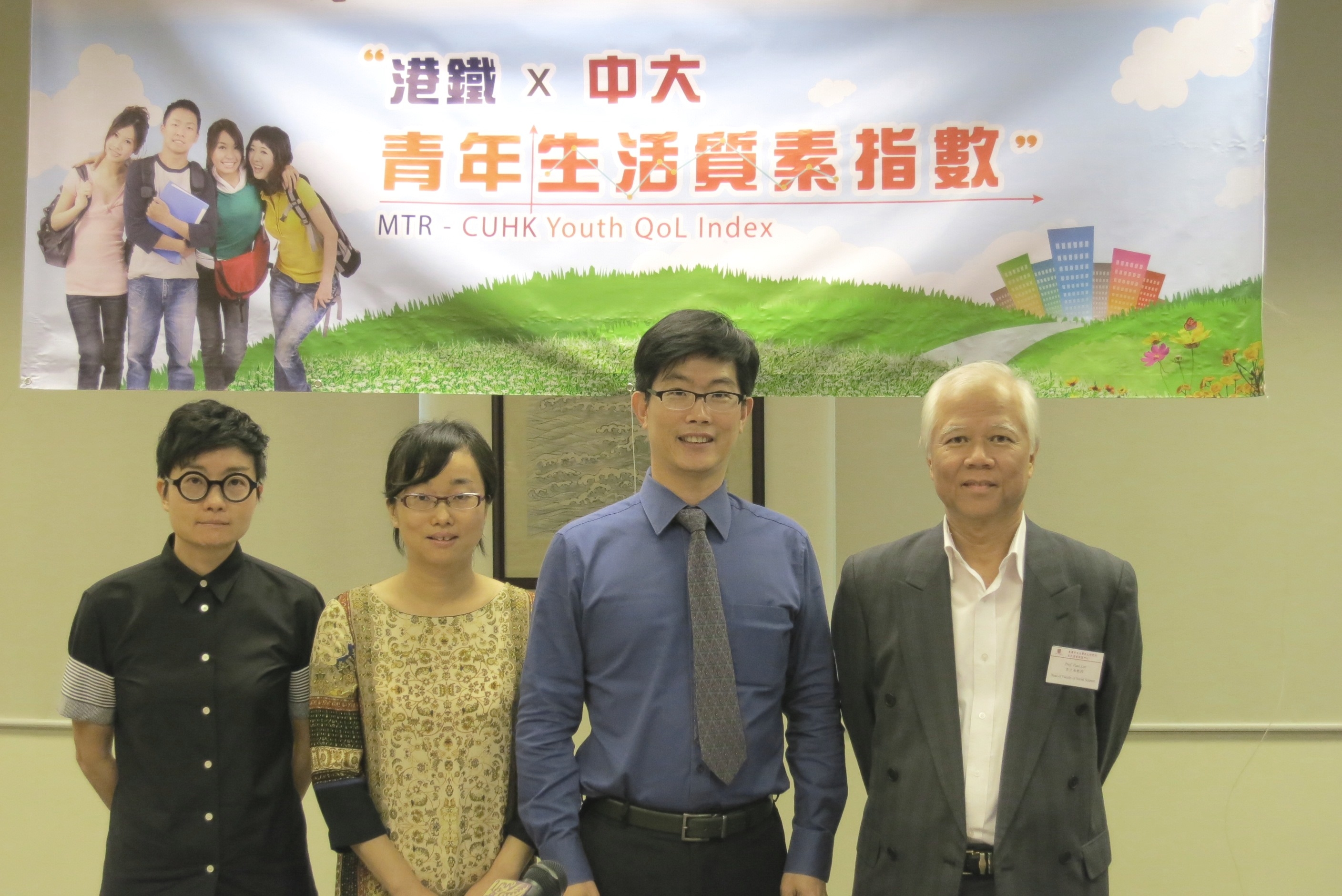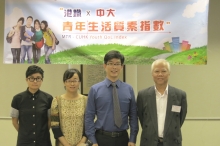CUHK
News Centre
MTR – CUHK Youth Quality of Life Index:Quality of Life of Youth in Hong Kong Improves Slightly in 2013/14
The Centre for Quality of Life at The Chinese University of Hong Kong (CUHK) released the latest MTR – CUHK Youth Quality of Life Index today (7 July). The result indicates that the overall quality of life of youth in Hong Kong has slightly improved in 2014 as compared with last year.
The Index consists of 28 indicators that are grouped into 8 domains: Physical Health, Psychological Well-being, Society, Economics, Education, Politics, Living Environment, and Overall Well-being (Appendix 1). The indicators are selected according to their coverage, measurability, representativeness, and importance to the quality of life of youth in Hong Kong.
2012/2013 was the base year of the study, and the MTR – CUHK Youth Quality of Life Index for that year was set at 100. If the Index of a subsequent year is above 100, it means that the quality of life of youth in Hong Kong in that year is better than that of the base year. If the index is below 100, it reveals that the quality of life of youth in Hong Kong in that year is worse than that of the base year. If the Index is 100, it indicates that the youth’s quality of life in that year is the same as that of 2012/2013.
According to the latest MTR – CUHK Youth Quality of Life Index, the overall score in 2013/2014 is 100.39 an increase of 0.39 points from 2012/2013 (the base year which equals 100), indicating a slight improvement in the quality of life of youth in Hong Kong in the past 12 months (Appendix 2).
The latest index shows the domains of Psychological Well-being, Society, Education, Living Environment, and Overall Well-being have improved, while the domains of Physical Health, Economics, and Politics have declined (Appendix 2).
Compared with last year’s figures, 12 out of the 28 indicators have improved (Appendix 3), among which Youth Crime Rate and Mental Health were the most noticeable. Other indicators like Drug Abuse Behavior, Index of current economic conditions and Environmental Quality have also improved in the past 12 months.
16 out of the 28 indicators have worsened (Appendix 4), among which Government Performance Evaluation was the most noticeable. In addition, Public Expenditure on Education and Opportunity for Development have also become less desirable in 2013/14.
The compilation of the Index is sponsored by the MTR Corporation reflecting its ongoing commitment to foster the development of the younger generation to meet future challenges. The Index is the only composite index to measure and keep track of the quality of life of youth in Hong Kong. Both the MTR Corporation and the Centre for Quality of Life, CUHK believe that the Index can provide policy makers and the community with a useful reference tool to devise appropriate policies and programmes for the betterment of youth and the society at large. It also enhances public understanding of issues that may affect quality of life of youth in Hong Kong.
For more information on the MTR – CUHK Youth Quality of Life Index, please visit The Centre for Quality of Life website: www.cuhk.edu.hk/hkiaps/qol.
(From right) Prof. Lee Siu-nam, Paul, Dean of Social Science and Professor, School of Journalism and Communication; Prof. Ng Sai-leung, Director, Centre for Quality of Life and Associate Professor, Department of Geography and Resource Management; Prof. Wang Qian and Prof. Mak Wing-sze, Winnie, Associate Professors, Department of Psychology, CUHK.



